Royal Order
Of Jesters Past Directors Collection
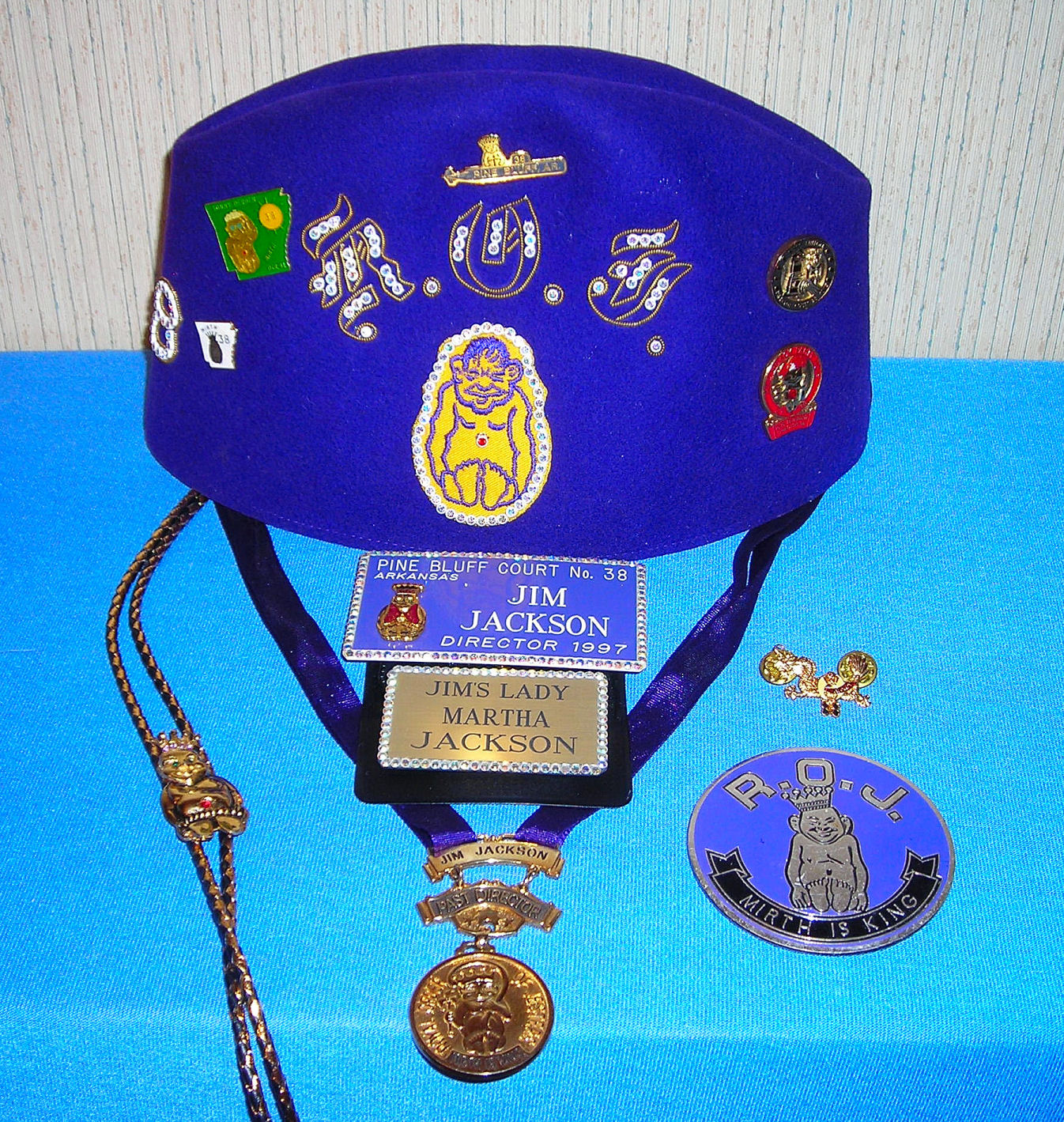
This great
collection of ROJ memorabilia belonged to Past Director - 1997 - Jim Jackson who
was a member of ROJ Court No. 38 in Pine Bluff, Arkansas. Brother Jackson
was a Past Master of Quapaw Masonic Lodge and a Shriner at Sahara Temple also in
Pine Bluff. Brother Jim took the journey to the Celestial Lodge above on
May 17th, 2008. His wife Martha donated this collection of ROJ memorabilia to
our museum in memory of him!
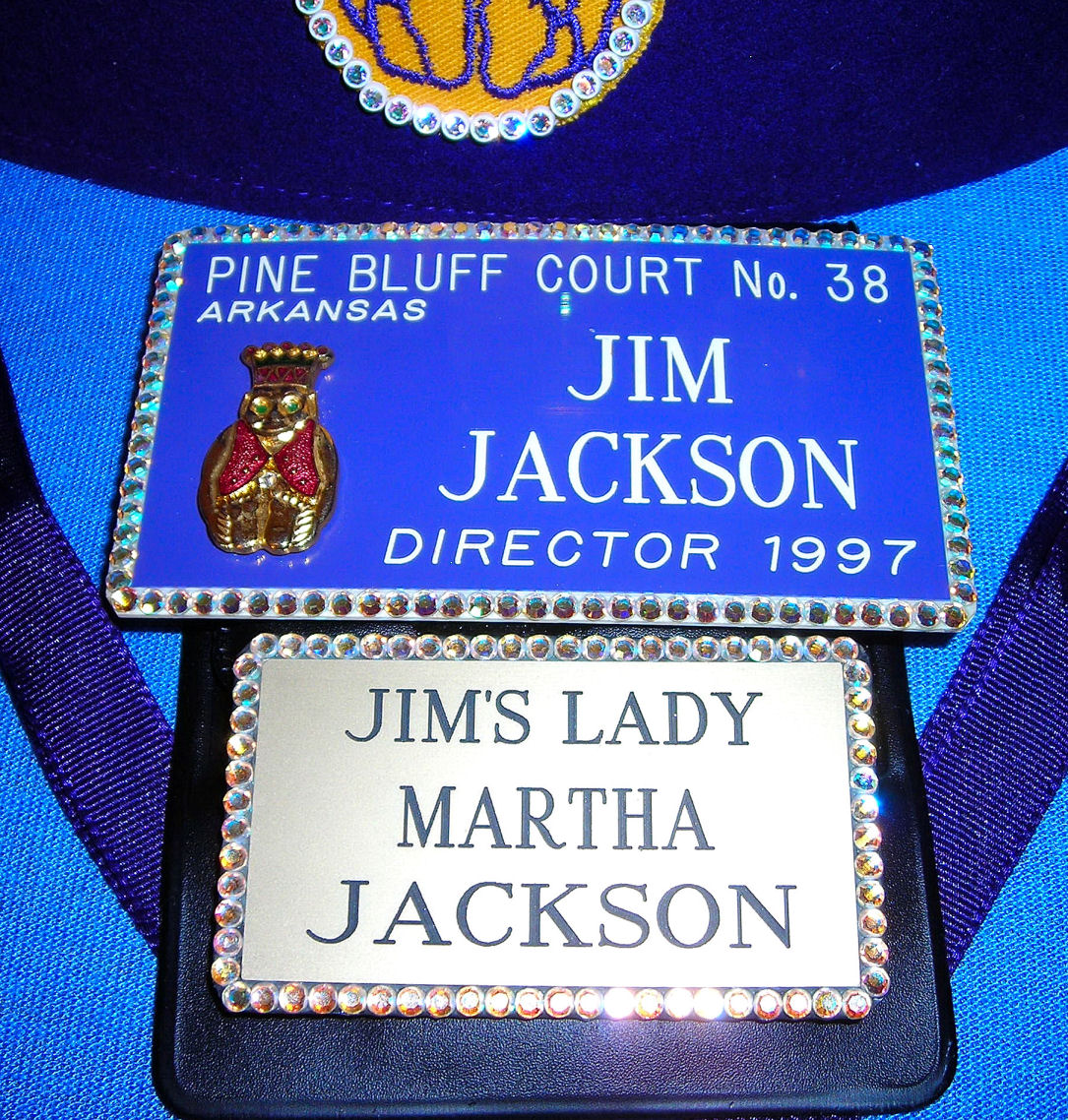

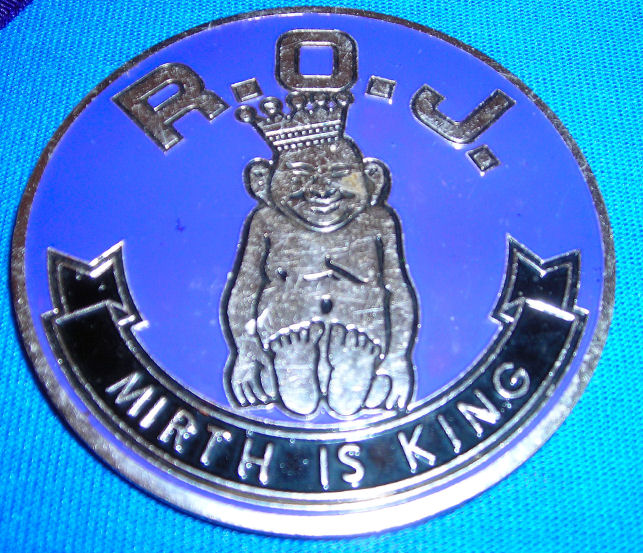
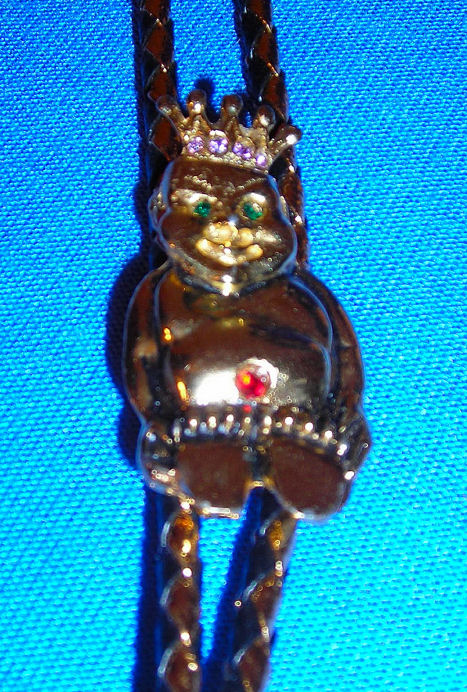


Jim and Martha
Jackson
On Right: Jim Jackson - Director 1997 pictured with Sonny Derden ROJ Court
No. 38 Pine Bluff, Arkansas

Martha and Jim at
Sahara Shrine Temple

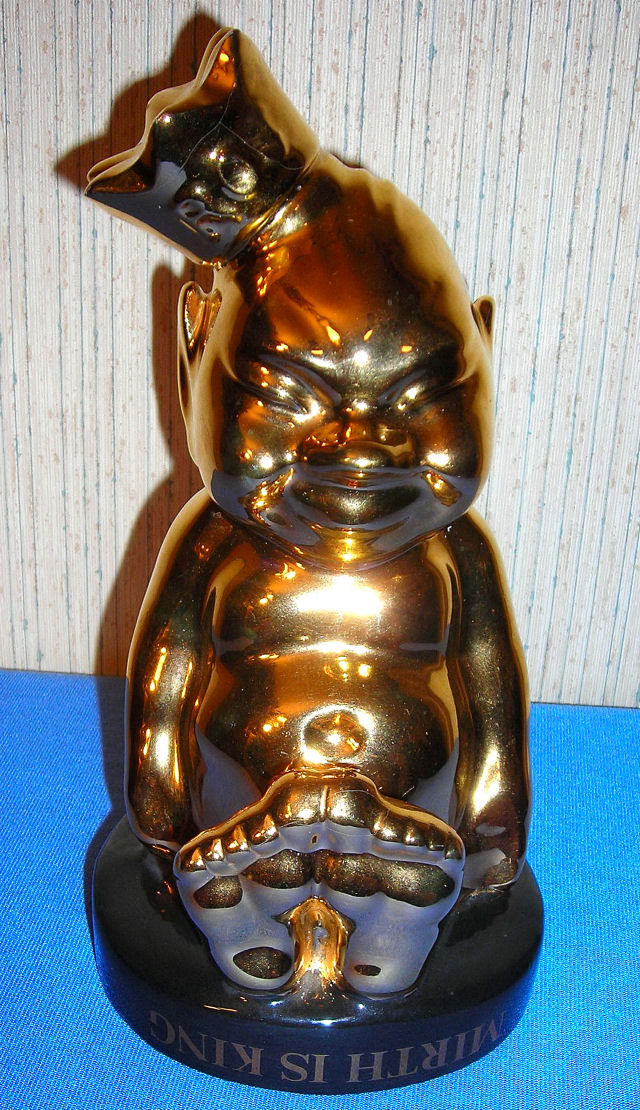
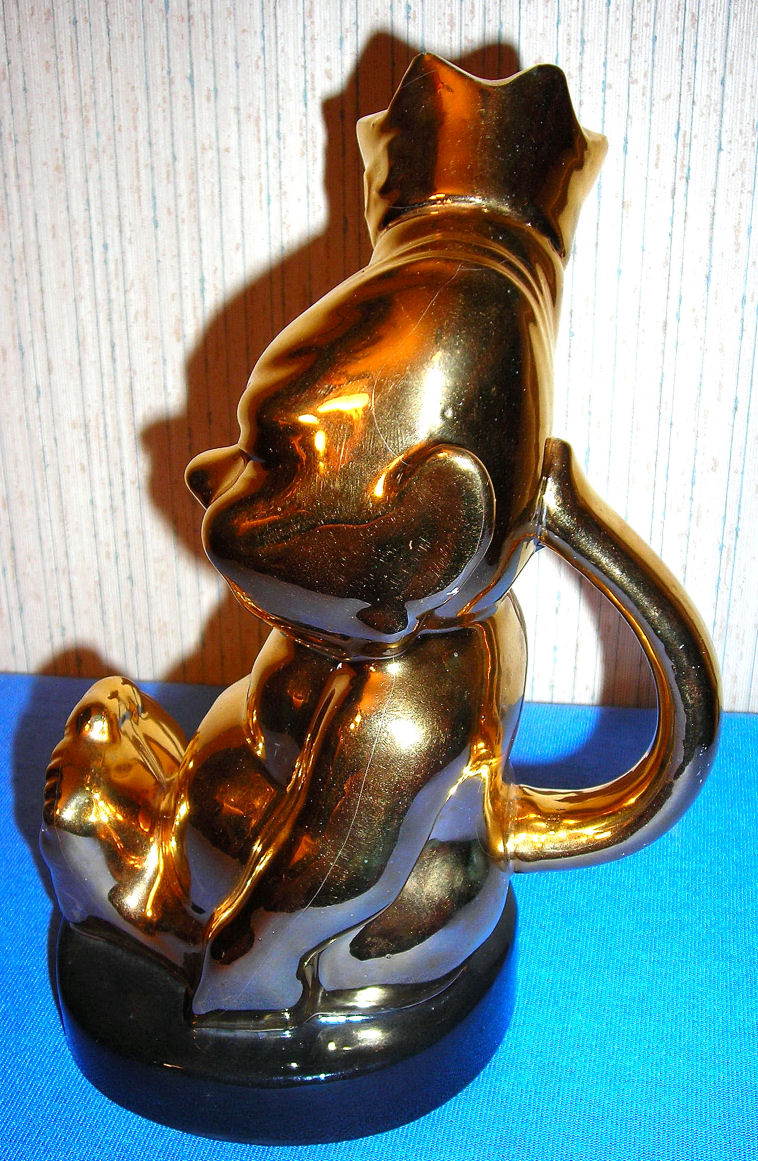
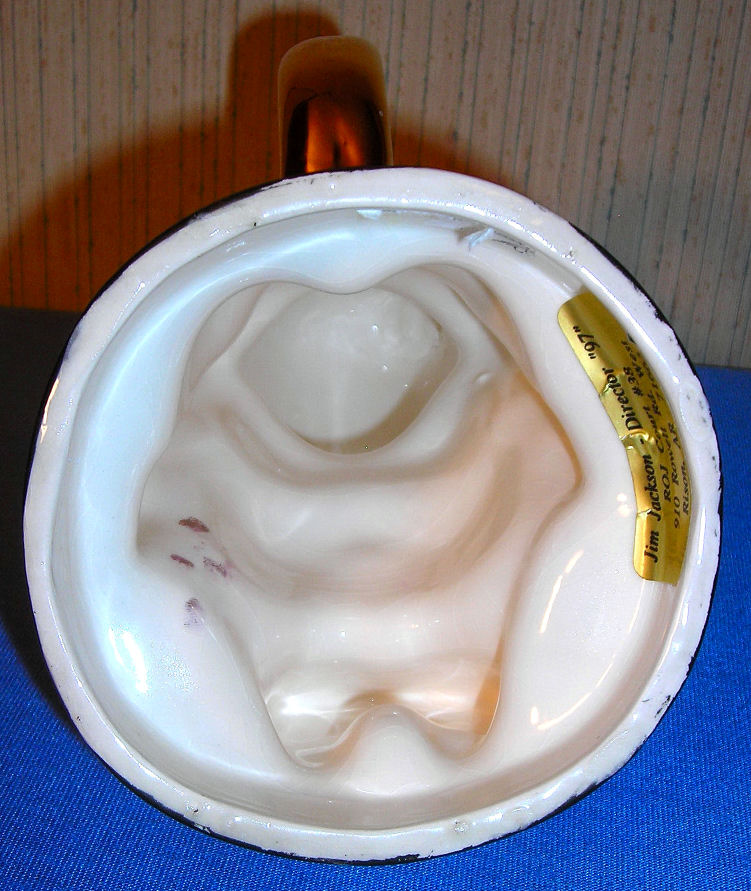
This is an ROJ
Bottoms Up Mug! You can't set the mug down until you finish the drink in
it!

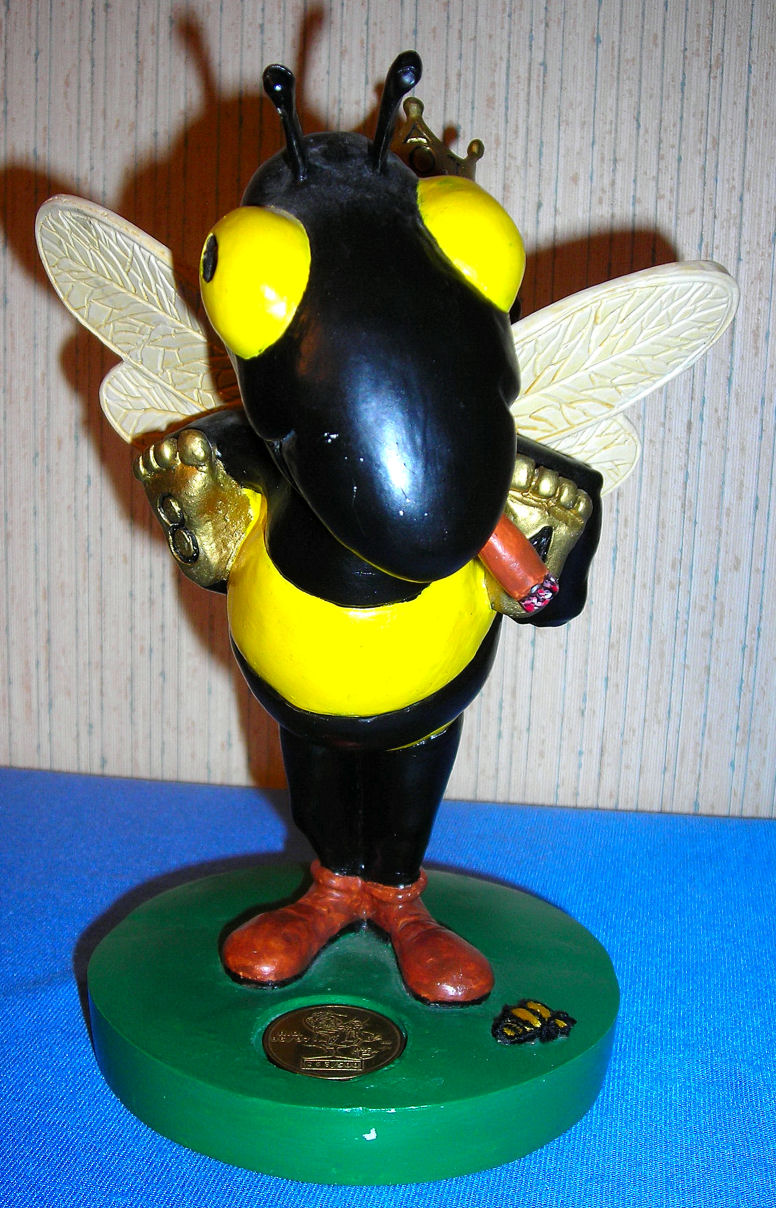
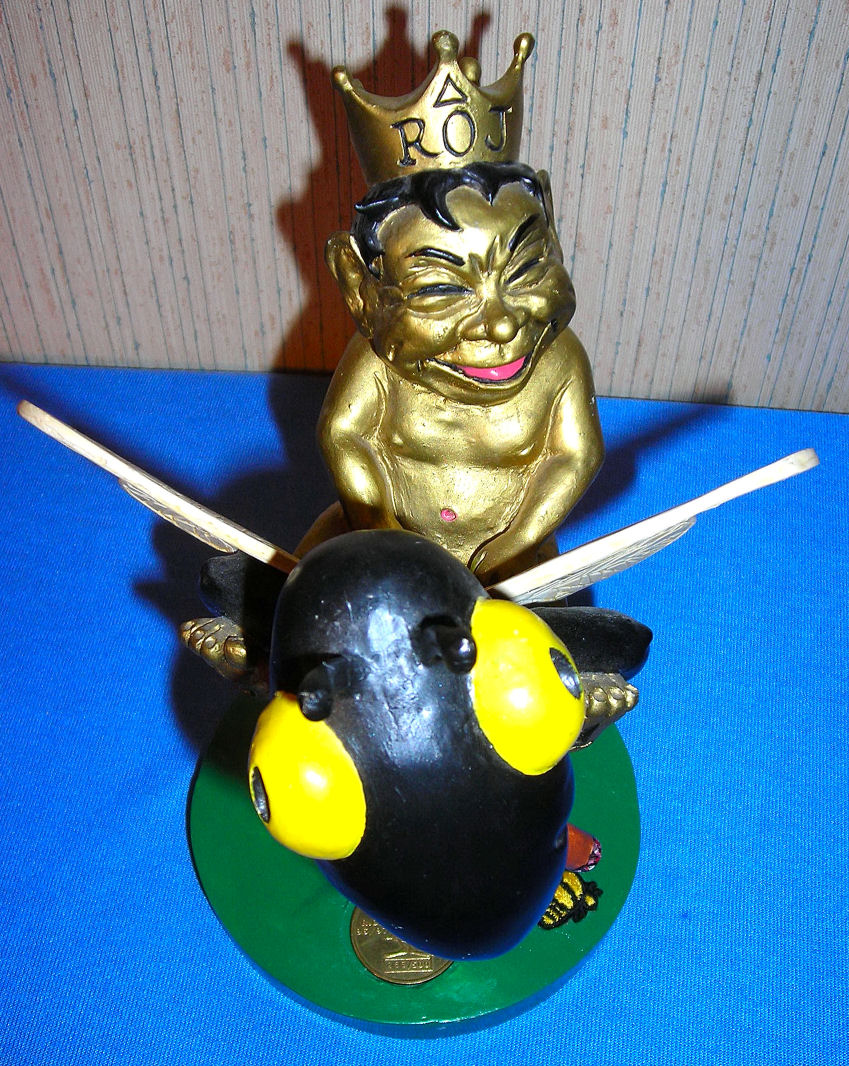
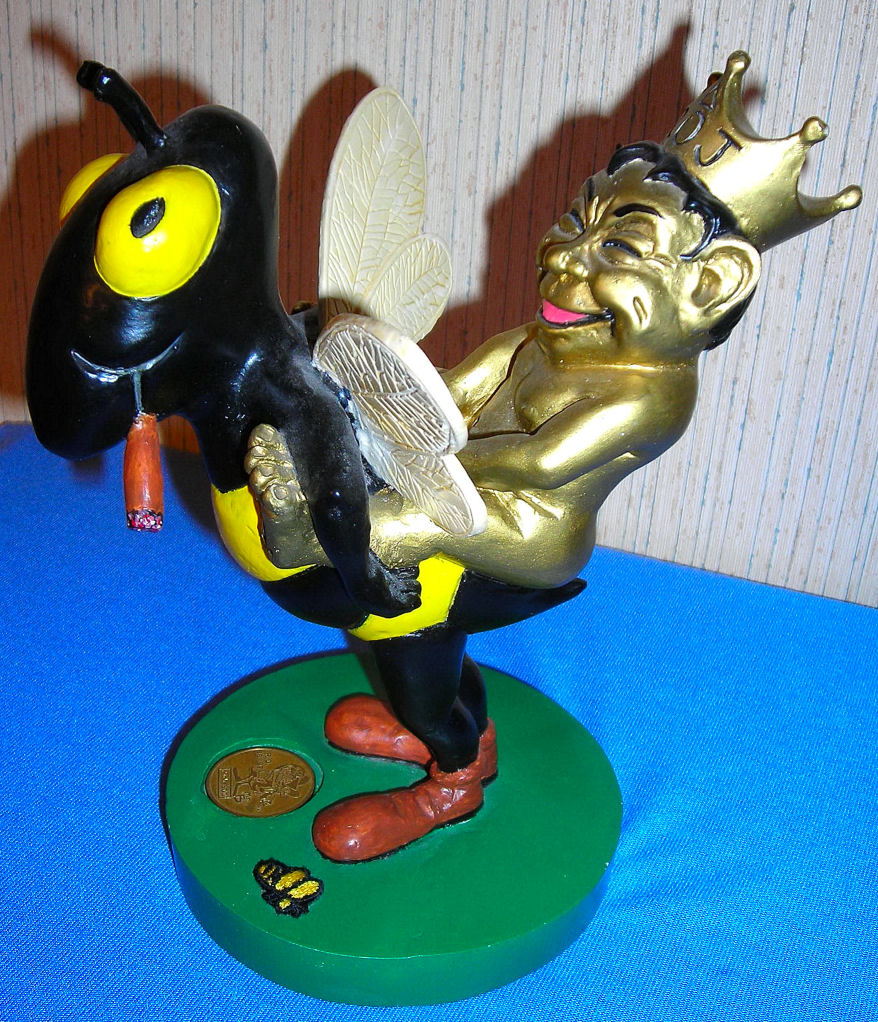
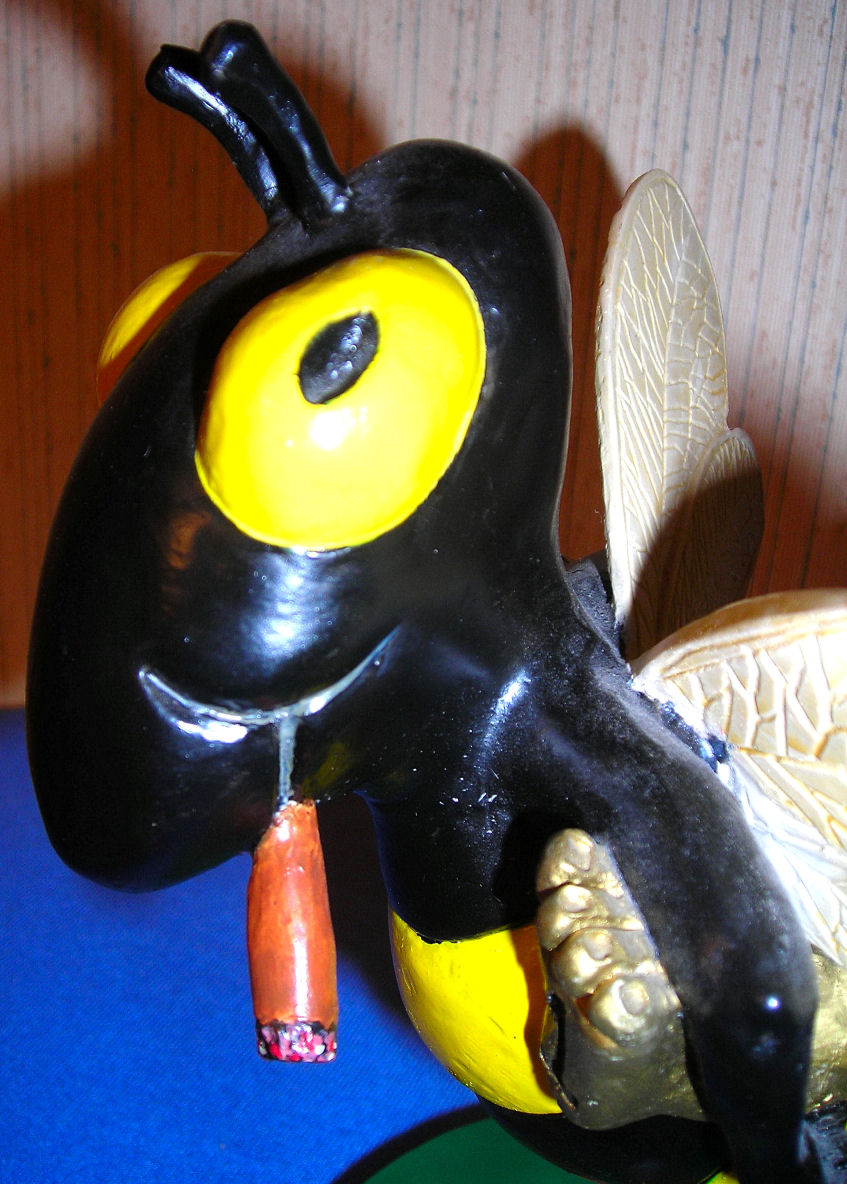
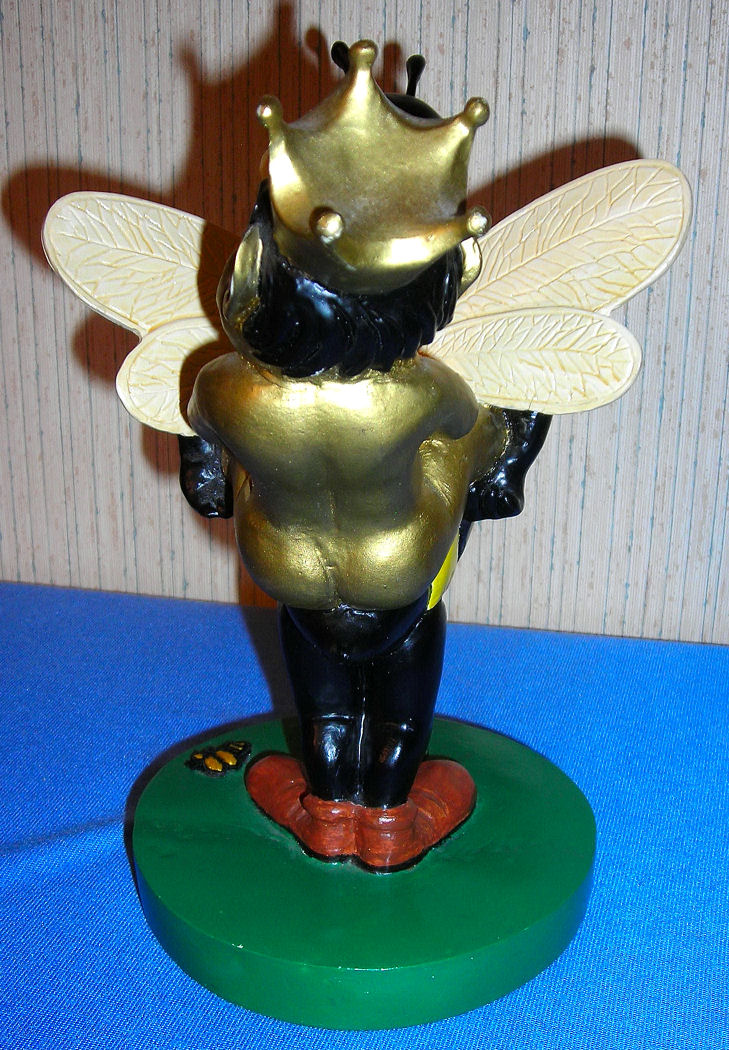
This is a
wonderful ROJ statue of a Billiken riding a cigar smoking bumble bee called Mr.
"B"! The statue was made for ROJ Court No. 81 in St. Louis, MO. and
is numbered 265/500.

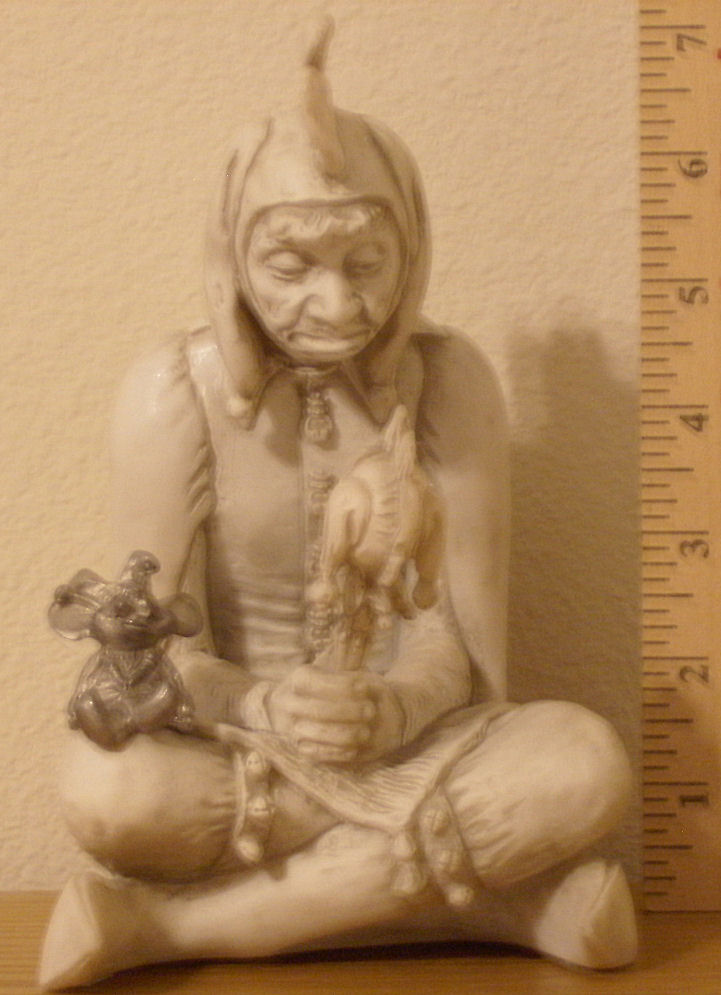
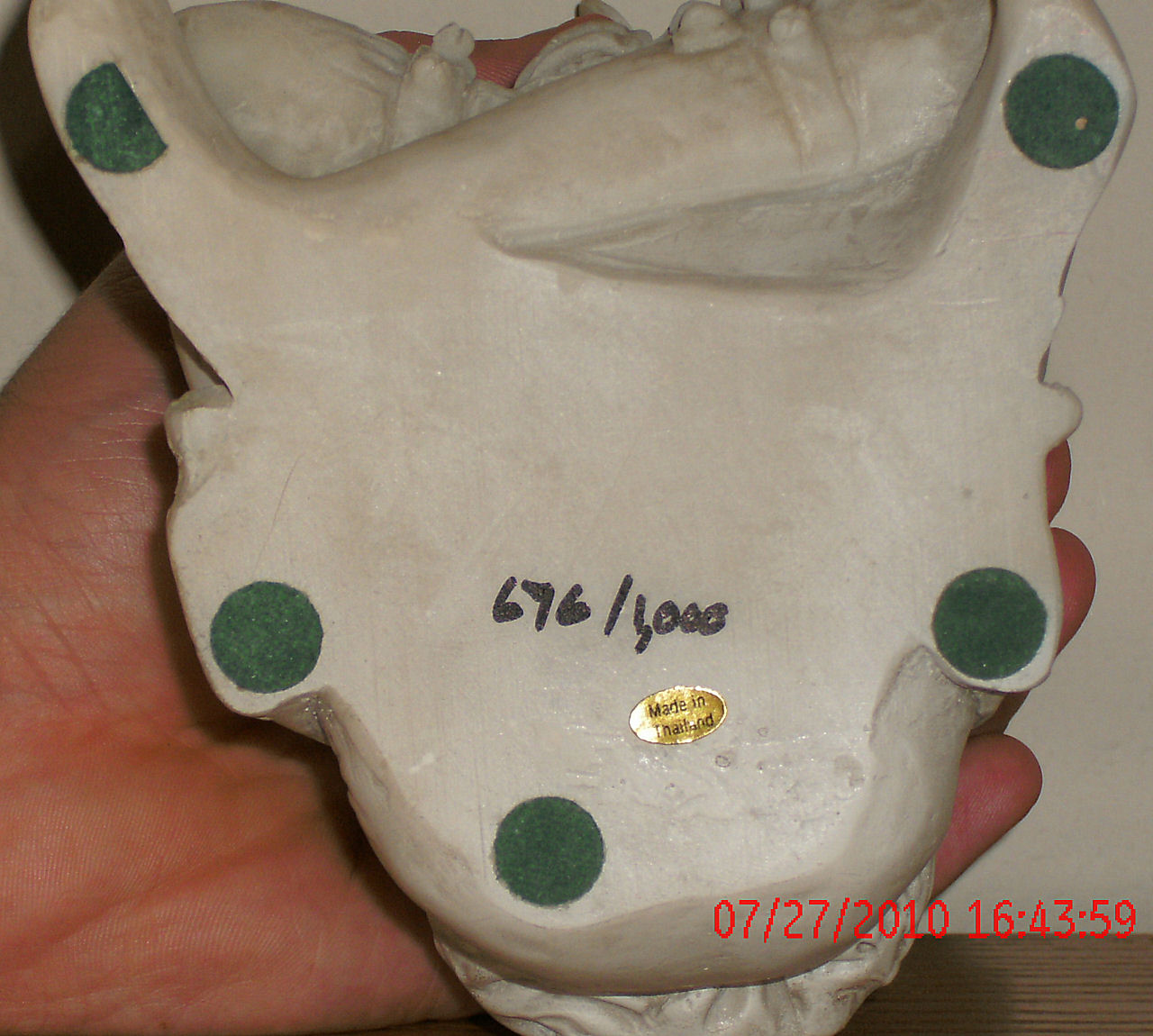
This ROJ Statue
depicts a Native American Jester with a tiny mouse sitting in his lap while he
ponders the Jester baton in his hands! It is numbered 676/1000.


This was Jester
Jim's Kachina bolo!
From
Wikipedia -- A kachina (also katchina or katcina,
pronounced
/kəˈtʃiːnə/;
Hopi: katsina
/kətˈsiːnə/, plural katsinim
/kətˈsiːnɨm/) is a spirit being in western
Pueblo cosmology and
religious practices.[1]
The western Pueblo,
Native American
cultures located in the southwestern
United States, include
Hopi,
Zuni,
Tewa Village (on the
Hopi Reservation),
Acoma Pueblo, and
Laguna Pueblo. In later
times, the kachina cult have spread to more eastern Pueblos, e.g. from Laguna
to
Isleta. The term also
refers to the kachina dancers, masked members of the tribe who dress up
as kachinas for religious ceremonies, and
kachina dolls,
wooden dolls representing kachinas which are given as gifts to children.
A kachina
can represent anything in the natural world or cosmos, from a revered ancestor
to an element, a location, a quality, a natural phenomenon, or a concept. There
are more than 400 different kachinas in Hopi and
Pueblo culture. The local
pantheon of kachinas varies in each pueblo community; there may be kachinas for
the sun, stars, thunderstorms, wind, corn, insects, and many other concepts.
Kachinas are understood as having humanlike relationships; they may have uncles,
sisters, and grandmothers, and may marry and have children. Although not
worshipped,[2]
each is viewed as a powerful being who, if given veneration and respect, can use
their particular power for human good, bringing rainfall, healing, fertility, or
protection, for example. One observer has written:[3]
The central
theme of the kachina cult is the presence of life in all objects that fill the
universe. Everything has an essence or a life force, and humans must interact
with these or fail to survive.

